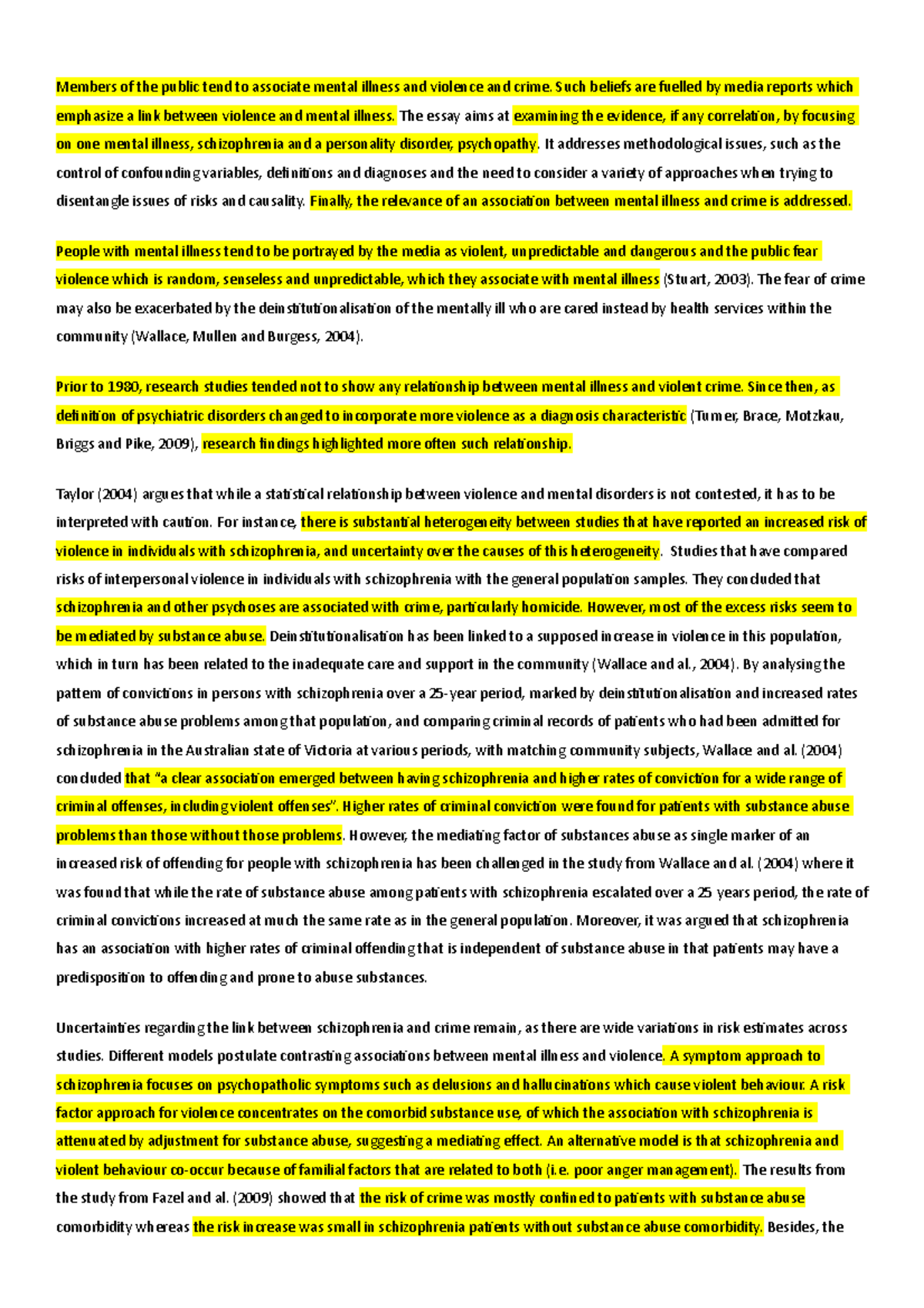The Lasting Impact Of High Potential: An 11-Year Retrospective On Psych-Spiritual Success

Table of Contents
Defining High Potential and Psych-Spiritual Success
Understanding the lasting impact of high potential requires a clear definition of both "high potential" and "psych-spiritual success."
What constitutes "high potential"?
Identifying high potential individuals involves a multifaceted assessment beyond simply high IQ scores. It encompasses several key areas:
- Intellectual capacity and cognitive abilities: High potential individuals often demonstrate exceptional intellectual agility, rapid learning, and advanced problem-solving skills.
- Exceptional creativity and problem-solving skills: They possess the ability to think outside the box, generate innovative solutions, and adapt to changing circumstances.
- Leadership potential and influence: They often exhibit natural leadership qualities, inspiring and motivating others to achieve common goals.
- Emotional intelligence and self-awareness: Crucially, high potential isn't solely about intellect; it also involves a strong understanding of one's own emotions and the ability to manage them effectively. This emotional intelligence is vital for navigating complex interpersonal dynamics.
Measuring Psych-Spiritual Success
Measuring psych-spiritual success goes beyond traditional metrics of career achievement and financial success. It encompasses:
- Defining subjective well-being and life satisfaction: This involves assessing overall happiness, contentment, and a sense of purpose in life.
- Assessing the integration of psychological and spiritual aspects of life: It considers the harmony between one's mental and emotional health and their spiritual beliefs and values.
- Measuring contributions to society and meaningful purpose: A sense of contributing to something larger than oneself is a key indicator of psych-spiritual success.
- Indicators of resilience and adaptability to life challenges: The ability to bounce back from setbacks and adapt to unforeseen circumstances is crucial for long-term well-being.
The Eleven-Year Retrospective Study: Methodology and Participants
This research involved a longitudinal study tracking a cohort of individuals identified as high-potential at the outset.
- Participant selection process: Participants were identified through a rigorous selection process involving psychological assessments, interviews, and performance evaluations. This ensured a representative group of high-potential individuals across diverse backgrounds.
- Research methodology: The study employed a mixed-methods approach, incorporating longitudinal surveys, in-depth interviews, and performance data to track changes over the eleven-year period.
- Demographics: The participant group comprised individuals from various professional fields, educational backgrounds, and socioeconomic statuses. This diversity enhanced the generalizability of the findings.
- Ethical considerations: The study adhered to strict ethical guidelines, ensuring informed consent, data anonymity, and the protection of participant privacy.
Key Factors Contributing to Long-Term Psych-Spiritual Success
The eleven-year study revealed several key factors contributing to sustained psych-spiritual success among high-potential individuals.
The Role of Self-Awareness and Emotional Intelligence
Self-awareness and emotional intelligence emerged as crucial predictors of long-term success.
- Understanding strengths and weaknesses: High-achievers who understood their limitations and leveraged their strengths experienced greater fulfillment and avoided burnout.
- Effective emotion management: The ability to manage stress, navigate difficult emotions, and maintain emotional regulation was paramount to sustained success.
- Building strong relationships: Cultivating supportive relationships both personally and professionally proved essential for navigating challenges and maintaining well-being.
The Significance of Purpose and Meaning
Finding and pursuing a meaningful life purpose significantly impacted long-term psych-spiritual success.
- Meaningful life purpose: Individuals with a clear sense of purpose reported higher levels of life satisfaction and resilience.
- Contributing to something larger: Making a positive impact on the world beyond personal achievement contributed to a greater sense of fulfillment.
- Purpose and long-term fulfillment: The study clearly demonstrated a strong correlation between a well-defined purpose and long-term well-being.
The Cultivation of Resilience and Adaptability
Resilience and adaptability were vital for overcoming inevitable setbacks and challenges.
- Overcoming challenges: High-potential individuals who developed effective coping mechanisms and strategies for navigating obstacles were more likely to sustain their success.
- Learning from failures: The ability to view failures as learning opportunities was a key component of resilience.
- Growth mindset: Embracing change and challenges with a growth mindset fostered adaptability and resilience.
Challenges and Obstacles Faced by High-Potential Individuals
Even high-potential individuals encounter significant challenges on their journey to psych-spiritual success.
Burnout and Stress Management
The relentless pursuit of achievement can lead to burnout.
- Prevalence of burnout: The study revealed a significant risk of burnout among high-achievers, highlighting the importance of self-care.
- Effective stress management: Strategies such as mindfulness, exercise, and sufficient rest were crucial in mitigating burnout.
Maintaining Work-Life Balance
Achieving a healthy work-life balance is essential for sustained well-being.
- Prioritizing well-being: Individuals who prioritized their personal well-being alongside their professional goals demonstrated greater resilience and long-term success.
- Setting boundaries: Learning to set boundaries and avoid overcommitment was vital in preventing burnout and maintaining a healthy work-life balance.
Navigating Relationships and Social Dynamics
Interpersonal relationships can present unique challenges for high-potential individuals.
- Interpersonal challenges: The study identified potential conflicts arising from high expectations and ambition.
- Building healthy relationships: Cultivating empathy, communication skills, and healthy boundaries were key to navigating social dynamics successfully.
Conclusion
This eleven-year retrospective study on the lasting impact of high potential underscores the importance of self-awareness, purpose, resilience, and effective stress management in achieving long-term psych-spiritual success. The findings highlight that true success extends beyond material achievements, encompassing overall well-being and meaningful contribution.
Call to Action: Unlock your own lasting impact by embracing the principles of high potential and fostering your psych-spiritual growth. Explore resources and strategies for cultivating self-awareness, building resilience, and finding your purpose. Invest in your personal and spiritual development to achieve lasting fulfillment and contribute meaningfully to the world. Learn more about maximizing your high potential today!

Featured Posts
-
 Tracking Elon Musks Net Worth A 100 Day Study Of The Trump Administration
May 09, 2025
Tracking Elon Musks Net Worth A 100 Day Study Of The Trump Administration
May 09, 2025 -
 Kaitlin Olson And The High Potential Repeats On Abc In March 2025
May 09, 2025
Kaitlin Olson And The High Potential Repeats On Abc In March 2025
May 09, 2025 -
 Jack Doohans Future Palmers Insights After Colapintos Appointment
May 09, 2025
Jack Doohans Future Palmers Insights After Colapintos Appointment
May 09, 2025 -
 Prisao De Suspeita Que Se Apresenta Como Madeleine Mc Cann Na Inglaterra
May 09, 2025
Prisao De Suspeita Que Se Apresenta Como Madeleine Mc Cann Na Inglaterra
May 09, 2025 -
 Champions League Final Preview Hargreaves On Arsenal Vs Psg Showdown
May 09, 2025
Champions League Final Preview Hargreaves On Arsenal Vs Psg Showdown
May 09, 2025
Latest Posts
-
 Understanding The Complex Relationship Between Mental Illness And Violent Crime
May 09, 2025
Understanding The Complex Relationship Between Mental Illness And Violent Crime
May 09, 2025 -
 Mental Health Violence And The Media Deconstructing The Monster Narrative
May 09, 2025
Mental Health Violence And The Media Deconstructing The Monster Narrative
May 09, 2025 -
 Severe Mental Illness And Violence Addressing The Academic Failures In Understanding
May 09, 2025
Severe Mental Illness And Violence Addressing The Academic Failures In Understanding
May 09, 2025 -
 The Misrepresentation Of Mentally Ill Killers A Critical Analysis
May 09, 2025
The Misrepresentation Of Mentally Ill Killers A Critical Analysis
May 09, 2025 -
 Nottingham Attack Survivors Break Silence Recount Ordeal
May 09, 2025
Nottingham Attack Survivors Break Silence Recount Ordeal
May 09, 2025
